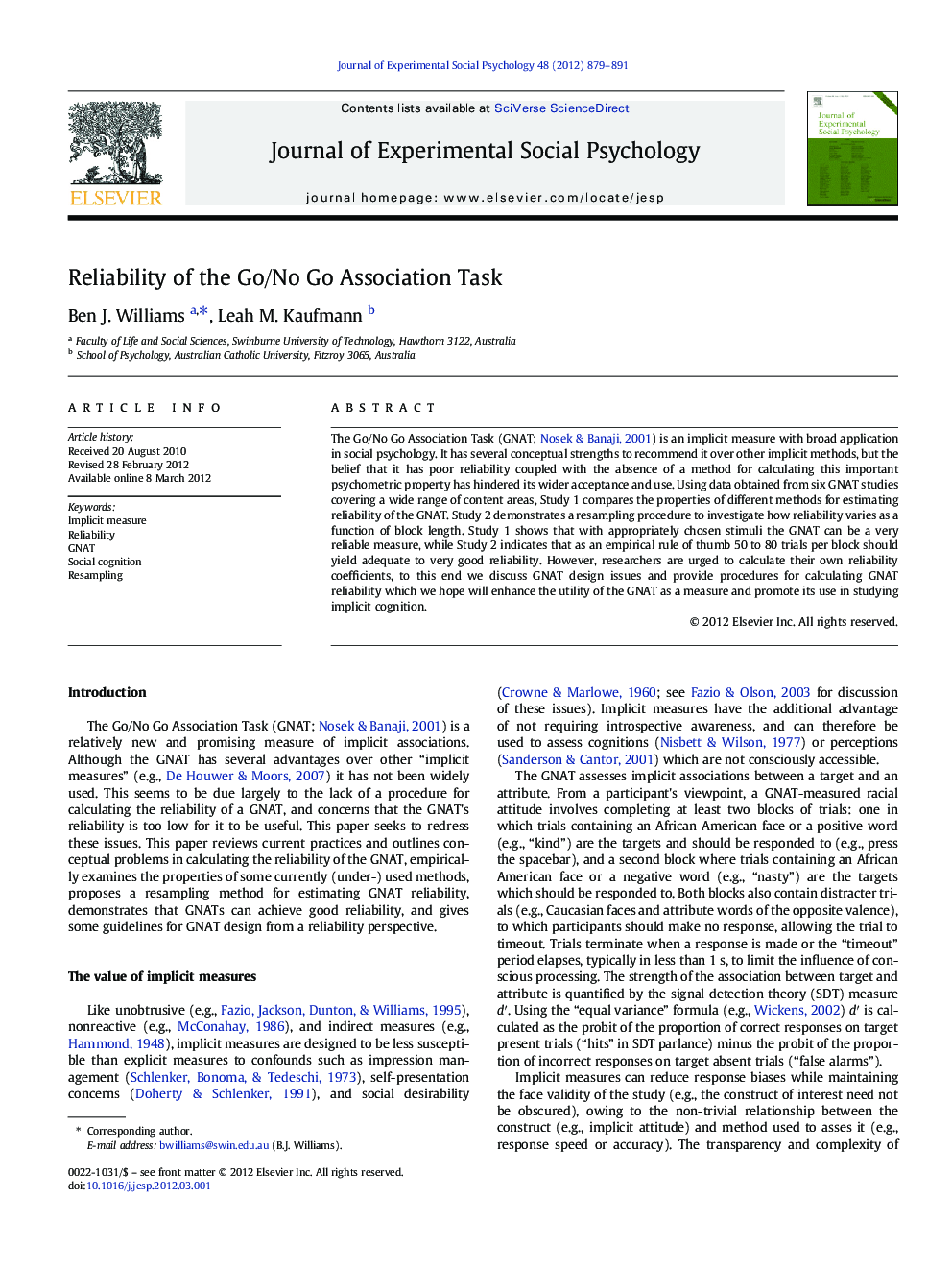| Article ID | Journal | Published Year | Pages | File Type |
|---|---|---|---|---|
| 948281 | Journal of Experimental Social Psychology | 2012 | 13 Pages |
The Go/No Go Association Task (GNAT; Nosek & Banaji, 2001) is an implicit measure with broad application in social psychology. It has several conceptual strengths to recommend it over other implicit methods, but the belief that it has poor reliability coupled with the absence of a method for calculating this important psychometric property has hindered its wider acceptance and use. Using data obtained from six GNAT studies covering a wide range of content areas, Study 1 compares the properties of different methods for estimating reliability of the GNAT. Study 2 demonstrates a resampling procedure to investigate how reliability varies as a function of block length. Study 1 shows that with appropriately chosen stimuli the GNAT can be a very reliable measure, while Study 2 indicates that as an empirical rule of thumb 50 to 80 trials per block should yield adequate to very good reliability. However, researchers are urged to calculate their own reliability coefficients, to this end we discuss GNAT design issues and provide procedures for calculating GNAT reliability which we hope will enhance the utility of the GNAT as a measure and promote its use in studying implicit cognition.
► The GNAT is an implicit measure of association neglected due to its putative poor reliability. ► We provide a catalog of studies using the GNAT methodology. ► We examine the properties of several methods of estimating GNAT reliability. ► We develop a new method of calculating GNAT reliability with desirable properties. ► We show that the GNAT can be reliable and provide guidelines for designing GNATs.
